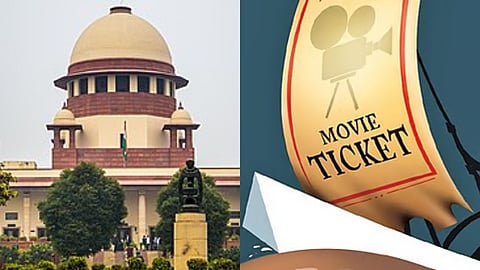

The Supreme Court of India has temporarily stayed the Karnataka High Court’s order requiring multiplexes to maintain detailed auditable records for every ticket sold. The bench, comprising Justices Vikram Nath and Sandeep Mehta, issued the interim relief as the broader legal dispute over the state’s ₹200 ticket-price cap continues.
The issue arose following the Karnataka Cinemas (Regulation) (Amendment) Rules, 2025, which imposed a maximum ticket price of ₹200 for cinema halls across the state. Initially, a Single Judge of the High Court had stayed the price cap, but the Division Bench later directed multiplex operators to maintain comprehensive transaction records. These were to include sale dates, payment modes, GST details, and other information to ensure accountability during the interim period.
Represented by the Multiplex Association of India, multiplex owners argued that complying with the order would be practically difficult. They noted that the majority of tickets are booked online, making cash-transaction ID verification cumbersome and operationally challenging. The association further warned that the extensive record-keeping mandate could disrupt day-to-day business.
During the proceedings, the Supreme Court also took note of the concerns raised by cinema-goers about rising ticket and snack prices. The judges highlighted the disparity in costs, observing that “at Rs 100 for a water bottle and Rs 700 for a ticket, the halls may soon be empty,” underscoring the need to balance public accessibility with commercial viability.
With the stay in place, the High Court’s record-keeping order is temporarily suspended, while the ₹200 ticket-price ceiling remains unresolved. The Single Judge Bench of the High Court may still continue hearing the matter independently.
The case brings into focus the ongoing challenge of balancing consumer affordability with business sustainability in the multiplex sector. Stakeholders and cinema-goers alike are awaiting the Supreme Court’s further directions, which are expected to clarify the enforce ability of the price cap while ensuring multiplex operators can continue functioning without undue operational constraints.